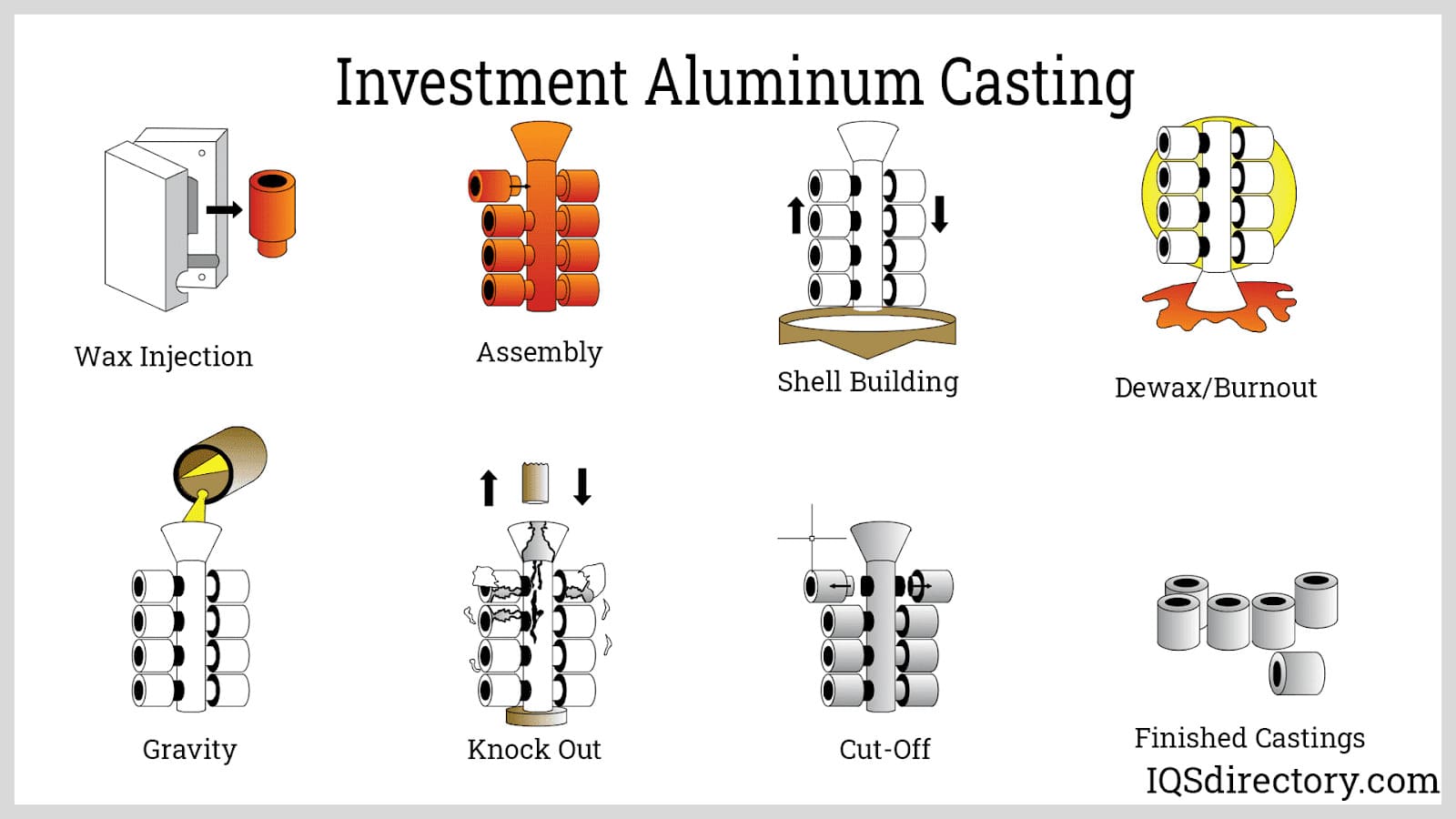More About Stahl Specialty Company
More About Stahl Specialty Company
Blog Article
The smart Trick of Stahl Specialty Company That Nobody is Discussing
Table of ContentsRumored Buzz on Stahl Specialty CompanyGet This Report about Stahl Specialty CompanyStahl Specialty Company - QuestionsNot known Details About Stahl Specialty Company How Stahl Specialty Company can Save You Time, Stress, and Money.
Chemical Comparison of Cast Light weight aluminum Alloys Silicon promotes castability by decreasing the alloy's melting temperature and improving fluidity throughout spreading. In addition, silicon adds to the alloy's toughness and wear resistance, making it useful in applications where toughness is crucial, such as automotive components and engine parts.It also boosts the machinability of the alloy, making it much easier to refine into finished items. This way, iron contributes to the overall workability of light weight aluminum alloys. Copper increases electrical conductivity, making it beneficial in electric applications. It also enhances deterioration resistance and adds to the alloy's total toughness.
Manganese adds to the stamina of light weight aluminum alloys and improves workability. It is commonly utilized in wrought light weight aluminum products like sheets, extrusions, and profiles. The presence of manganese aids in the alloy's formability and resistance to fracturing throughout fabrication processes. Magnesium is a lightweight component that gives toughness and influence resistance to aluminum alloys.
It allows the production of light-weight parts with outstanding mechanical homes. Zinc improves the castability of aluminum alloys and assists manage the solidification process throughout casting. It improves the alloy's toughness and firmness. It is often found in applications where intricate forms and great information are needed, such as ornamental castings and particular automobile components.
Stahl Specialty Company Things To Know Before You Get This
Because aluminum-silicon alloys have great spreading buildings, high gas buildings, basic procedures, and excellent rust resistance, aluminum-silicon alloys are most generally utilized in the die-casting sector at home and abroad. At the exact same time, aluminum-silicon alloys are also relatively very early and extensively recognized alloys established and made use of in die-casting. After continuous study and improvement, a lot of the present international mainstream aluminum-silicon alloys have been completed and are nothing even more than A356, A360, A380, ADC12, B390, and A413.
The key thermal conductivity, tensile toughness, return stamina, and elongation differ. Amongst the above alloys, A356 has the highest possible thermal conductivity, and A380 and ADC12 have the lowest.

Stahl Specialty Company Can Be Fun For Anyone
In accuracy spreading, 6063 is appropriate for applications where complex geometries and top notch surface area coatings are extremely important. Instances include telecommunication enclosures, where the alloy's exceptional formability enables sleek and visually pleasing styles while maintaining architectural honesty. Likewise, in the Lights Solutions industry, precision-cast 6063 elements create sophisticated and effective illumination components that require elaborate shapes and great thermal efficiency.
(https://forums.hostsearch.com/member.php?272859-stahlspecialc)
The A360 shows exceptional elongation, making it perfect for complex and thin-walled parts. In accuracy casting applications, A360 is well-suited for markets such as Consumer Electronic Devices, Telecommunication, and Power Devices.

In precision casting, light weight aluminum 413 shines in the Customer Electronics and Power Devices markets. This alloy's premium rust resistance makes it an outstanding selection for exterior applications, making certain lasting, sturdy products in the mentioned sectors.
The 6-Minute Rule for Stahl Specialty Company
The light weight aluminum alloy you select will significantly impact both the casting procedure and the properties of the last product. Because of this, you must make your choice carefully and take an informed approach.
Determining one of the most ideal light weight aluminum alloy for your application will certainly imply weighing a wide selection of characteristics. These relative alloy features adhere to the North American Die Spreading Association's standards, and we've divided them right into two categories. Aluminum Casting. The initial classification addresses alloy characteristics that affect the production process. The 2nd covers characteristics affecting the buildings of the final item.
The alloy you pick for die casting directly affects several aspects of the spreading process, like how simple the alloy is to collaborate with and if it is vulnerable to casting defects. Warm fracturing, also referred to as solidification breaking, is a normal die spreading problem for aluminum alloys that can lead to inner or surface-level splits or splits.
Some Ideas on Stahl Specialty Company You Need To Know
Particular light weight aluminum alloys are much more at risk to hot splitting than others, and your choice ought to consider this. One more usual problem found in the die casting of aluminum is pass away soldering, which is when the cast adheres to the die wall surfaces and makes ejection challenging. It can damage both the actors and the die, so you must look for alloys with high anti-soldering residential properties.
Rust resistance, which is already a significant characteristic of light weight aluminum, can differ considerably from alloy to alloy and is a vital characteristic to take into consideration depending on the ecological problems your item will be exposed to. Use resistance is another residential property typically looked for in light weight aluminum items and can differentiate some alloys.
Report this page